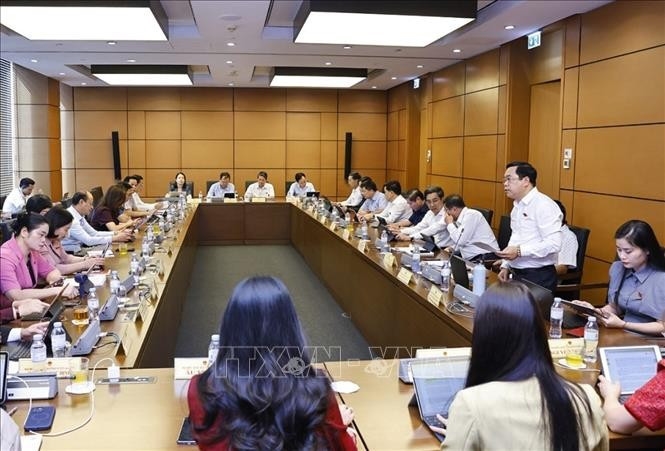October 22, 2025 | 21:29 (GMT+7)
N.A. reviews major education law reforms to boost autonomy, modernization
The 15th National Assembly, in its ongoing 10th session, held group discussions on October 22 afternoon to review the draft Law on amendments and supplements to several articles of the Law on Education, the revised Law on Higher Education, and the amended Law on Vocational Education.
Lawmakers largely concurred that the three draft laws are tightly interwoven, designed to institutionalize the Party’s sweeping policy directives, notably the Politburo’s Resolution 71, which charts breakthroughs in education and training reform, along with key resolutions on sci-tech, innovation, digital transformation, international cooperation, private sector growth, and legal reform.
    |
 |
|
At a group discussion within the 10th session of the 15th National Assembly |
They stressed that the proposed reforms are a must to fix the education system’s nagging problems. The draft laws seek to grant greater autonomy to educational establishments while ensuring quality, accountability, and efficiency. They also meet new requirements on decentralization, delegation of authority, administrative reforms and a shift to a two-tier local administration model.
Deputy Tran Thi Quynh, representing Ninh Binh province, drew attention to a forward-looking clause in the draft amendments to the Law on Education, which would permit diplomas to be issued in paper, electronic, or digital formats. She lauded it as a step to meet Vietnam’s digital transformation ambitions and simplify diploma management and verification.
Discussions also turned to proposals to make secondary education compulsory, roll out universal preschool education for children aged three to five, introduce a single national set of textbooks, and abolish school councils in public educational establishments.
Source: VNA